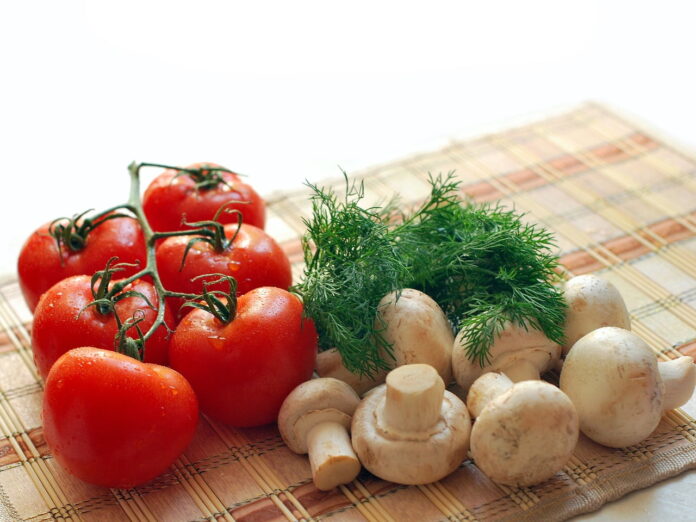Vegetarianism is a dietary lifestyle that excludes meat, poultry, and sometimes fish, from the diet. It is a practice that has been around for centuries, with roots in various cultures and religions. Today, people choose vegetarianism for a variety of reasons, including health concerns, ethical considerations regarding animal welfare, and environmental sustainability. There are different types of vegetarian diets, such as lacto-ovo (includes dairy and eggs), lacto (includes dairy), and ovo (includes eggs), each with its own set of guidelines.
Health Benefits
Numerous studies have shown that a well-planned vegetarian diet can offer a range of health benefits. Vegetarians often have lower rates of heart disease, hypertension, type 2 diabetes, and certain types of cancer. This is partly due to a higher intake of fiber, vitamins, and phytonutrients found in fruits, vegetables, and whole grains, as well as a lower intake of saturated fats typically found in animal products.
Environmental and Ethical Considerations
The environmental benefits of a vegetarian diet are significant. Livestock farming is a major contributor to greenhouse gas emissions, deforestation, and water usage. By reducing the demand for meat, vegetarians can help lessen their ecological footprint. Ethically, many people choose vegetarianism to avoid contributing to the often inhumane conditions of factory farming and the moral implications of slaughtering animals for food.
Personal Growth and Community
Transitioning to a vegetarian lifestyle can also be a journey of personal growth, leading to a more conscious and mindful way of living. It can foster a sense of community as individuals connect with others who share similar values. The rise of vegetarianism has also led to a proliferation of resources, from cookbooks to online forums, making it easier than ever to adopt and maintain this lifestyle.
Planning Your Vegetarian Transition: A Step-by-Step Guide
Educate Yourself
Before making the switch, it’s important to educate yourself about vegetarian nutrition and meal planning. Understanding the components of a balanced vegetarian diet will help you make informed choices. Resources like the Academy of Nutrition and Dietetics and reputable food blogs can provide valuable information.
Gradual Changes
Transitioning gradually can make the process more manageable and sustainable. Start by incorporating more plant-based meals into your diet and reducing meat portions. Meatless Mondays, for example, are a popular way to ease into the change. Over time, you can increase the number of vegetarian meals until you’ve fully transitioned.
Experiment with Recipes
One of the joys of vegetarianism is discovering new foods and flavors. Experiment with different vegetables, grains, and legumes. Try international cuisines that are traditionally plant-based, such as Indian or Mediterranean. Cooking at home allows you to control ingredients and explore creative vegetarian dishes.
Plan Your Meals
Meal planning is crucial to ensure you’re getting a variety of nutrients and to prevent fallbacks into old eating habits. Plan your weekly meals, create a shopping list, and prep ingredients in advance. This will save time and reduce the temptation to opt for convenience foods that may not align with your new diet.
Essential Nutrients and How to Get Them on a Vegetarian Diet
Protein
Protein is essential for building and repairing tissues, and it’s a common concern when transitioning to a vegetarian diet. However, there are plenty of plant-based protein sources, including beans, lentils, tofu, tempeh, and quinoa. Dairy products and eggs are also excellent protein sources for lacto-ovo vegetarians.
Iron
Iron is crucial for transporting oxygen in the blood. Vegetarians can obtain iron from plant sources like lentils, chickpeas, fortified cereals, spinach, and pumpkin seeds. Consuming vitamin C-rich foods alongside iron-rich foods can enhance absorption.
Calcium and Vitamin D
Calcium is vital for bone health, while vitamin D helps the body absorb calcium. Dairy products are a primary source for lacto vegetarians, but plant-based options include fortified plant milks, tofu, and leafy greens. Sun exposure and supplements can help maintain adequate vitamin D levels.
B12 and Omega-3 Fatty Acids
Vitamin B12 is typically found in animal products, so vegetarians may need to consume fortified foods or supplements. Omega-3 fatty acids, important for heart and brain health, can be found in flaxseeds, chia seeds, walnuts, and algae-based supplements.
Overcoming Common Challenges and Staying Committed to Your New Lifestyle
Social and Cultural Hurdles
One of the challenges of adopting a vegetarian diet can be social pressure and cultural norms. It’s helpful to communicate your reasons for becoming vegetarian to friends and family. When dining out, research restaurants in advance to find vegetarian-friendly options.
Maintaining Variety
To avoid dietary boredom, it’s important to keep your meals varied and exciting. Continuously seek out new recipes and ingredients to expand your culinary repertoire. This will not only keep your taste buds happy but also ensure a wide range of nutrients.
Handling Cravings
Cravings for meat can occur, especially in the early stages. Find satisfying vegetarian alternatives that can fulfill these cravings, such as hearty veggie burgers or savory mushroom dishes. Over time, these cravings often diminish as your palate adjusts.
Staying Motivated
Remembering the reasons why you chose to become vegetarian can help maintain motivation. Whether it’s for health, the environment, or animals, keeping your goals in mind can reinforce your commitment. Joining vegetarian communities, either locally or online, can provide support and encouragement.
Transitioning to a vegetarian diet is a rewarding journey that can lead to improved health, a lighter ecological footprint, and a deeper connection to your food choices. By taking it step by step, educating yourself, and staying committed, you can successfully adopt and enjoy a vegetarian lifestyle.
